Tuesday,
October 4
Tutorial
Space is limited: Details & Registration
Creative Connections
Created and hosted by Michael Powell
Listening is central to ethnography, but most of us still have a lot to learn about listening, including how to constantly improve or refine our listening skills, how to communicate their unique value, how to use listening for positive impact, and how to articulate our role as professional listeners. In this session we’ll learn about some unique qualities of ethnographic listening, do an exercise in deep listening, and explore listening as an active, embodied practice for research and everyday life.
Creative Connections
Created and hosted by Sarah Brooks (Distinguished Designer, Strategic Foresight) & Meghan L McGrath (IBM Z Future Demands Lead), IBM
If anything is resilient, it’s the cocktail/coffee hour. Join us in the post-post-climate dystopian future, where you can swap business cards amidst the smoldering ruins of civilization. We’ll socialize and participate in an imagined future informed by research-based signals/trends around climate change and dwindling non-renewable resources. We’ll co-create beverages and snacks in a world in which many of the key crops of 2022 are no longer available and creative substitutions have to be made: What is the climate dystopian version of the cheese board, cocktail napkins, or small talk? How will human rituals morph and shift, but somehow carry on as the world dramatically changes? And we’ll generate useful conversations about the next steps for our teams and organizations as we explore possible futures.

Thank you Salesforce, EPIC2022 Gold Sponsor, for supporting the EPIC Community!
Tutorial
Space is limited: Details & Registration
Wednesday,
October 5
Tutorial
Tutorials
Sponsor Sessions
![]()
Atlassian are the makers of tools like Confluence, Jira and Trello that are used by thousands of teams worldwide. As an early adopter of distributed and digital first ways of working, Atlassian is continually driving innovation and leading the way in bringing teams together to collaborate and work effectively. Our research organisation plays a key role in building that resilience mindset. In this (Ask Me Anything (AMA) style panel, you will meet members of the Atlassian research team, where you can ask about anything, from their personal career journeys, to challenges they have faced, and their varied and exciting career paths at Atlassian. You can hear more about the team’s growth, what they look for when hiring researchers, what the hiring and onboarding process looks like, and how we have built a thriving and robust research culture in an Agile tech company. Atlassian is an EPIC2022 Platinum Sponsor
Moderator:

Jamie Sherman is a cultural anthropologist (PhD Princeton, 2011) and Sr Researcher at Atlassian focusing on data analytics and human decision processes. Previously she has lead research at Netflix and Intel Corporation on topics as diverse as content intelligence, creative workflows, gaming, virtual reality, wearable and smart home technologies. She is a sucker for interesting and complicated questions and has been surprised and delighted to find there is a career in that. Last year she was proud to serve as co-Chair of the EPIC 2021 conference.
Speakers:
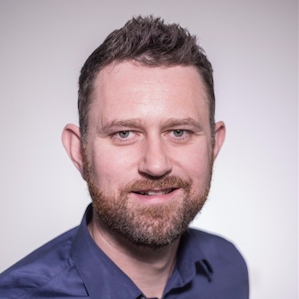

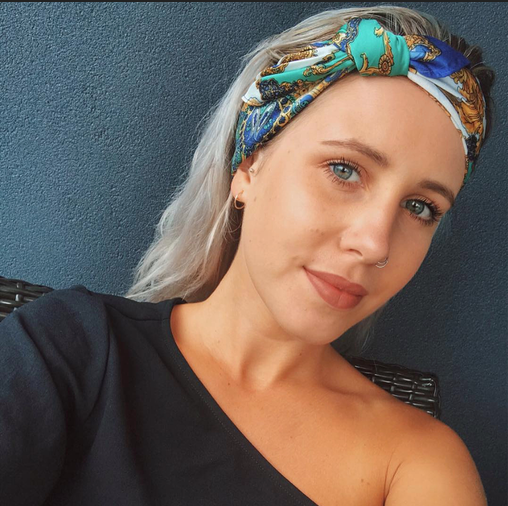

Jarrod Payne currently leads Atlassian’s Go-To-Market research program – including brand tracking, creative optimization, and pricing approaches (Conjoint). Jarrod is a research psychologist by training, specializing in quantitative research design and analysis. Whilst he has worked briefly as an academic researcher in the teaching and learning field, he has also worked primarily in brand and marketing research/strategy over the past 15 years with brands like Coca-Cola, South African Breweries, and Suncorp bank before joining Atlassian. In his spare time, Jarrod enjoys cooking complicated stuff, taking walks with his adorable dogs, and has recently convinced his wife to teach him how to knit with mixed success.
Since joining Atlassian 3 years ago, Tim Dixon has worked with teams within our Jira product and platform spaces. With a background spanning human factors psychology, socio-economic development, and UX research, Tim thrives on exploring strategic and systemic challenges across organisational contexts. He recently presented his talk, Bet you Didn’t Know You’re a UX Philosopher? at Design Research Australia, and is currently writing his second Designing Atlassian blog on using the Team Topologies framework.
Sophie Avard is a User Experience Researcher at Atlassian. I have a background in psychology and cognitive science, with a Masters of Research in Anthropology from Macquarie University in Sydney. As an anthropologist and early-career researcher, I have found a unique home in the world of UX where I can channel my passion for understanding human behaviour and motivation to help product teams build human-centered experiences.
Alice King works in the Talent Acquisition team at Atlassian and partners with the Research & Service Experience organisation. Alice plays a key role in helping build high performing, diverse and distributed teams. Alice has over 10 years recruitment experience, working in both Australia and the UK, across a range of industries and sectors. She loves engaging with talent and ensuring the end to end candidate.
100 Questions for Ethnographers: Casual Connections Networking
Platinum Panel – Atlassian
In this panel, moderated by Head of Research & Service Experience, Leisa Reichelt, Atlassian researchers and data scientists will explore how different crafts, methodologies, and perspectives came together to evolve one of our most important customer archetypes; the champion.
Showcasing the power of a research community, panelists will reflect on how they contributed to the evolution of this critical archetype by employing a range of research methods and cross-craft explorations.
Join us to learn how we applied qualitative data, innovative survey design and partnerships with other crafts to opportunistically apply a refreshed champion concept to emerging business strategies and leadership asks. We’ll discuss how we devised and executed on a research program that applied mixed methods approaches for greater confidence and impact.
Moderator:
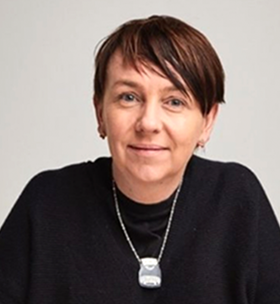
Leisa Reichelt leads the Research and Service Experience team at Atlassian, a company which is already focused on developing and unleashing the potential of all its teams. Having worked in both the UK and Australia, Leisa has spent time building research capabilities within government digital teams, helping them to create easier and more accessible public services. She has consulted with a mix of London tech startups and household name brands such as The Economist, BBC, Virgin Atlantic and many more. Although she loves research, Leisa’s passion is in enabling organisations to transform themselves through gaining a compelling and closer understanding of the user needs they serve.
Panelists:
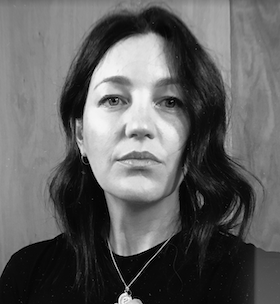
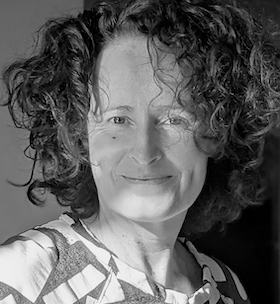
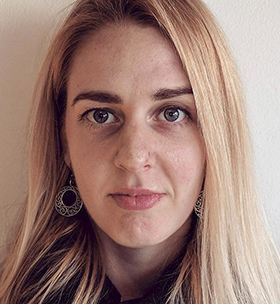

Sarah Hyne is a Lead Researcher at Atlassian. Her background spans graphic design, UX, anthropology, HCD and behavioural science. She’s endlessly fascinated by humans and culture and the ways the design of things affects lives, for better or worse. She works with teams at Atlassian to make our products simpler, smarter, more helpful and more meaningful for customers.
Natalie Rowland, Lead Researcher at Atlassian, is a qualitative researcher dedicated to the craft of design and social research. With a background in market research, video ethnography, and behaviour change, Natalie tunes into emerging needs and strives to bring decision-makers and designers closer to customer needs, environments and goals. She loves learning about teams and more human ways of working and is shaping how Atlassian products work together.
Gillian Bowan, a Lead Researcher at Atlassian, an anthropologist who completed field research in South India before shifting into user experience research in 2013. She has worked in service design for government and in the health sector. Passionate about multidisciplinary teamwork and improving ways of working, she is now at Atlassian, solving problems for all kinds of teams. She has a PhD in anthropology from Macquarie University.
André Jansson is a Senior Product Analyst at Atlassian. Having a keen interest in human behavior and data made product analytics is a perfect match for André. Always striving to understand how and why customers are using products the way they do, and what impact this has to the business as a whole, is something that drives André in his day to day.
Thursday,
October 6
Platinum Panel – Atlassian
In this panel, moderated by Head of Research & Service Experience, Leisa Reichelt, Atlassian researchers and data scientists will explore how different crafts, methodologies, and perspectives came together to evolve one of our most important customer archetypes; the champion.
Showcasing the power of a research community, panelists will reflect on how they contributed to the evolution of this critical archetype by employing a range of research methods and cross-craft explorations.
Join us to learn how we applied qualitative data, innovative survey design and partnerships with other crafts to opportunistically apply a refreshed champion concept to emerging business strategies and leadership asks. We’ll discuss how we devised and executed on a research program that applied mixed methods approaches for greater confidence and impact.
Moderator:

Leisa Reichelt leads the Research and Service Experience team at Atlassian, a company which is already focused on developing and unleashing the potential of all its teams. Having worked in both the UK and Australia, Leisa has spent time building research capabilities within government digital teams, helping them to create easier and more accessible public services. She has consulted with a mix of London tech startups and household name brands such as The Economist, BBC, Virgin Atlantic and many more. Although she loves research, Leisa’s passion is in enabling organisations to transform themselves through gaining a compelling and closer understanding of the user needs they serve.
Panelists:




Sarah Hyne is a Lead Researcher at Atlassian. Her background spans graphic design, UX, anthropology, HCD and behavioural science. She’s endlessly fascinated by humans and culture and the ways the design of things affects lives, for better or worse. She works with teams at Atlassian to make our products simpler, smarter, more helpful and more meaningful for customers.
Natalie Rowland, Lead Researcher at Atlassian, is a qualitative researcher dedicated to the craft of design and social research. With a background in market research, video ethnography, and behaviour change, Natalie tunes into emerging needs and strives to bring decision-makers and designers closer to customer needs, environments and goals. She loves learning about teams and more human ways of working and is shaping how Atlassian products work together.
Gillian Bowan, a Lead Researcher at Atlassian, an anthropologist who completed field research in South India before shifting into user experience research in 2013. She has worked in service design for government and in the health sector. Passionate about multidisciplinary teamwork and improving ways of working, she is now at Atlassian, solving problems for all kinds of teams. She has a PhD in anthropology from Macquarie University.
André Jansson is a Senior Product Analyst at Atlassian. Having a keen interest in human behavior and data made product analytics is a perfect match for André. Always striving to understand how and why customers are using products the way they do, and what impact this has to the business as a whole, is something that drives André in his day to day.
Creative Connections – Conversations in Resilience
Conversations in Resilience are Salons—an EPIC tradition. We’ll gather in small groups to discuss special topics in ethnography and resilience. Facilitated by hosts who guide participants with inspiring or provocative questions or scenarios, Salons offer a space where attendees share candidly, experiment with evolving ideas, and connect to EPIC people with similar interests. No prep. You’ll choose from the following concurrent conversations on our conference platform:
Reinventing resilience ritualsUpheavals in the last three years have highlighted cracks and fissures in our standard operating principles. How do we bring the value of resilience into our everyday lives? Do erstwhile methods endure, or do we need to rethink the way we shape and build resilient practices? This salon invites participants to reflect and share how their own definitions and rituals around resilience may have been restructured. What individual and shared experiences with resilience—at both micro and social or systemic levels—have shaped us, and what can we learn as a community from these?
Host:
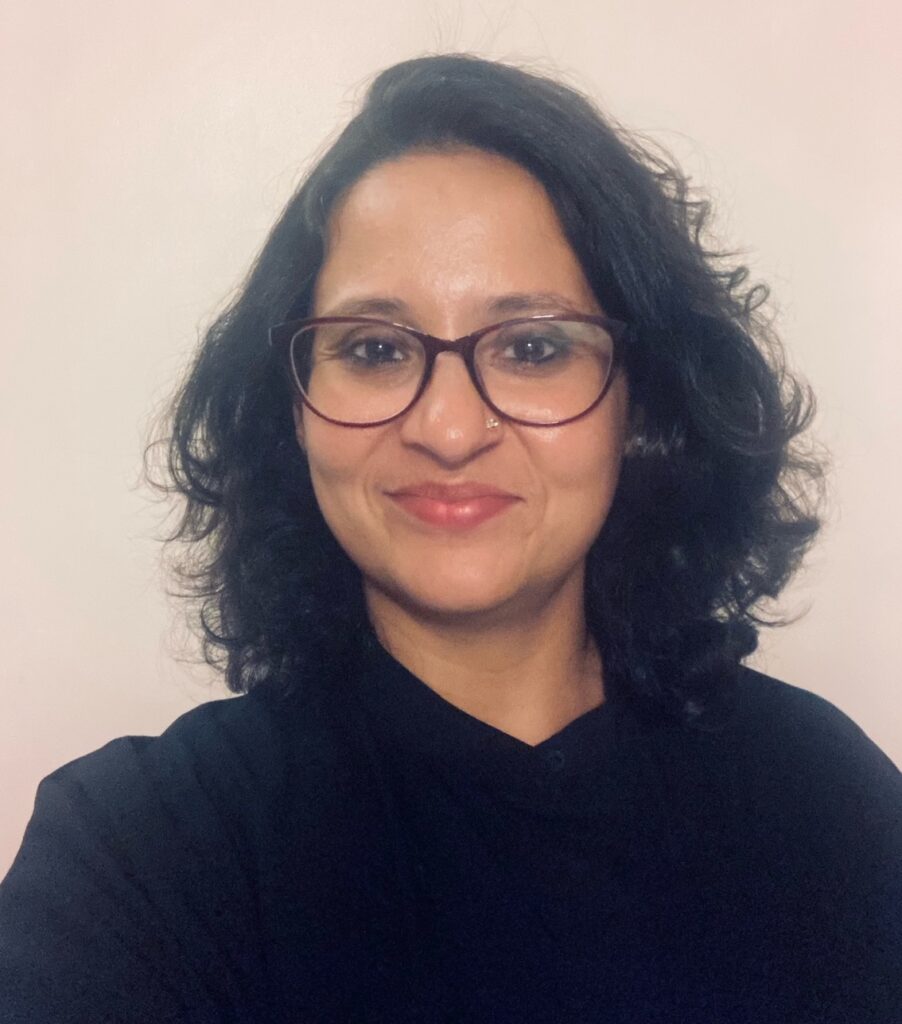
Sunandini Pande Ray has been working at the intersection of understanding people, culture and communication, in India and the Middle East. She has built her career within consumer research and insights—asking questions, connecting the dots and staying fascinated with the world outside and the world within. She focuses on situating human insights at the heart of strategy and building a deeper, more empathetic and inclusive understanding of consumer ecosystems.
Does the notion of resiliency encourage us to romanticise our ability to maintain or reinstate anything in the face of continual flux? Could the idea of responsiveness offer an alternative? Perhaps responsiveness invites new avenues of engagement rather than fears of loss or discontinuity. This debate will cut to the heart of existential epistemologies, encouraging us to question the extent to which we act upon the world or experience the world acting upon us.
Hosts:
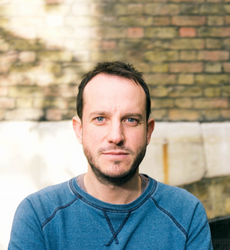
Dr Oliver Pattenden is an anthropologist who defines ethical opportunities for companies, charities, and governments by decoding human experiences, values, and behaviours. He is currently the Global Research and Insight Director at the Sustainability Studio, Accenture Song, the firm’s flagship centre for sustainability innovation. His projects focus on ethical creativity, social impact, experience strategy and product design, digital innovation, brand positioning and communications, scenario planning and organisational transformation. Oliver holds a PhD in anthropology from Rhodes University, specialising in phenomenology (experience), temporality, ethics, and sustainability. He is author of Taking Care of the Future: Moral Education and British Humanitarianism in South Africa.

Lilith Wacker works as Business Anthropologist specialized in informing business strategy and innovation through ethnographic research and human insight. Currently working at Accenture Song, her most recent projects focused on gaining a deep understanding of complex cultural phenomena like the meaning of money in women‘s life and how this affects financial inequality or the meaning of sustainability in peoples‘ daily context. Since 2008 Lilith has been planning, conducting and analyzing ethnographic studies in various business areas like health care & pharma, financial services and insurance, automotive, consumer electronics, manufacturing engineering and organizational change for companies around the globe. Lilith holds a Master’s in cultural studies from Leuphana University of Lüneburg, specializing in music, business administration, media and public relations, legal and economic sciences.
This salon will revolve around an interactive conversation on the role of ethics in reslilience. The means through which we collect data, and the depth of the data we touch, is evolving as our relationship with technology does. We need to create resilience in our relationship with both subjects and stakeholders while navigating privacy and data in the current data climate. This conversation will pose the following key questions to attendees:
What are the ethical boundaries that are in most jeopardy today? What are the issues facing them? Do these ethical principles need protecting? What are our roles, as ethnographers and practitioners of anthropology and social research, in maintaining ethical boundaries? Should we find the balance between ethical considerations and business objectives? If yes—how? If no—what next?
Host:

Nikki Lavoie is EVP, Global Experience Strategy of Savanta. Nikki has been working in research and insights for over 15 years, first starting as a qual/quant hybrid researcher within marketing insights, and then moving over to UX and CX work at the start of the digital interaction boom. Having started and sold her own qualitative UX agency—MindSpark Research International—she is now part of the Savanta team, and is leading the expansion of the company’s global experience offering.
In 2022, the concept of resilience across the world can’t be an issue driven only by governments, multinationals, and for-profits. To support our collective future, resiliency must be an issue we adapt to every part of human society. However, many communities don’t know why resilience matters to their future. This salon will build a space that imagines resilience as everyday praxis. By offering The Movement Institute, an organizing accelerator for changemakers in Arkansas as inspiration, we’ll discuss how our local organizations, our personal communities, and our lives should become sites for resiliency. This discussion will brainstorm and utilize useful methods, stories, and resources that make resilience praxis a tabletop discussion.
Host:
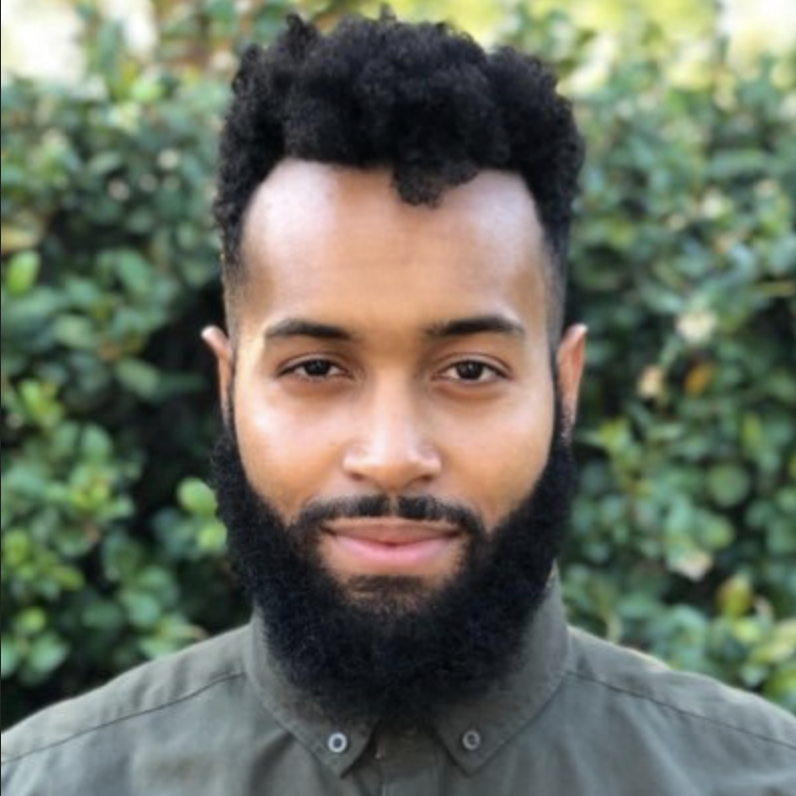 Dr. Pierce Otlhogile-Gordon is an innovation catalyst, researcher, facilitator, and evaluator, impassioned by the space between transformation and liberation. As the Director of the Equity Innovation studio at Think Rubix, a Black-led social innovation consultancy, Dr. Gordon serves as a shepherd for Equity Innovation to shape our collective future. He’s taught courses in design, evaluation, international development, and equity across four continents, co-designed partnerships, products, and services with local and international changemakers to support social change, and researched the complexity, evaluation, and emergence of design and innovation across the world.
Dr. Pierce Otlhogile-Gordon is an innovation catalyst, researcher, facilitator, and evaluator, impassioned by the space between transformation and liberation. As the Director of the Equity Innovation studio at Think Rubix, a Black-led social innovation consultancy, Dr. Gordon serves as a shepherd for Equity Innovation to shape our collective future. He’s taught courses in design, evaluation, international development, and equity across four continents, co-designed partnerships, products, and services with local and international changemakers to support social change, and researched the complexity, evaluation, and emergence of design and innovation across the world.
Creative Connections
Lydia O.Neill and Megan Anderson (D-Ford)
This workshop gives participants a hands-on window into how D-Ford, Ford’s human-centred design unit, is working to demystify foresight work and make it more accessible and actionable for fast-moving design teams. We will run an online ‘Signals Session’, which will result in a co-created collection of weak signals around a chosen theme. Participants will leave with an understanding of a collaborative approach to foresight work, its risks and benefits, and how similar methods can be adapted for their own work contexts. In doing so, we aim to stimulate reflection on the theme of resilience at a higher level.
100 Questions for Ethnographers
Make new connections with EPIC people from North and South America and Asia Pacific! We’ll use fun questions about work, food, nostalgia, movies, music, and more as prompts. Created and hosted by Maria Arguello (Google)
Friday,
October 7
Tutorial
Tutorial
Monday,
October 10
Keynote: Payal Arora
 Payal Arora is a digital anthropologist, Professor at Erasmus University Rotterdam, and Co-Founder of FemLab, a future of work initiative. Her expertise lies in user experience in the global south, digital inequality, and inclusive design. Forbes named her the “next billion champion” and the “right kind of person to reform tech.”
Payal Arora is a digital anthropologist, Professor at Erasmus University Rotterdam, and Co-Founder of FemLab, a future of work initiative. Her expertise lies in user experience in the global south, digital inequality, and inclusive design. Forbes named her the “next billion champion” and the “right kind of person to reform tech.”
Livestream, then on-demand in our conference platform.
Virtual Session
In this session, we’ll explore how we have used our passions, interests and leisure activities as resources to manage and mitigate the effects of burnout at work.
Host: Stefan Choo, Queensland University of Technology
Concurrent Sessions
Livestream, then watch on-demand.
Talking Resilience: The Transformative Power of Shared NarrativesThe contributions in this session highlight the power of collaborative, dialectic narratives in unpacking resilience. Through humor, storytelling, visualization and linguistic craft, these contributions offer insight into various lenses that we can use to examine the work we do and the footprint it leaves on others and ourselves.
Cultivating Resiliency for All: The Necessity of Trauma-Informed Research Practices (Paper)
Matthew Bernius, Code for America
Rachael Dietkus, Social Workers Who DesignClarissa Schitine, Federal University of Bahia
Mapping the Messy: Storytelling-as-Resilience, Reframing, Academia-as-Fieldsite (PechaKucha)
Lisa Koeman, Elsevier
Laughing All the Way to EPIC (PechaKucha)
Evan Hanover, Conifer Research
Resilience requires us to go past established processes, tools and frameworks as our guides. These presenters shift our perspective on the theories that guide our work, renew our attention to what we know about positionality, reflexivity, place and practice, and even consider ways in which our practices are performative acts. The Papers and PechaKuchas in this session share a commitment to ensuring that the techniques we build and employ are flexible and adaptive to dramatic change.
Theory Instruments as Tangible Ways of Knowing (Paper)
Jessica Sorenson, University of Southern Denmark
Mette Gislev Kjærsgaard, University of Southern Denmark
Jacob Buur, University of Southern Denmark
Mary Karyda, University of Southern Denmark
Ayşe Özge Ağça, University of Southern Denmark
Beyond Zoom Fatigue (Paper)
John Sherry, Intel
Ethnography as a Feedback Loop: Designing Complex, Automated Systems (Paper)
Kelsie Nabben, Royal Melbourne Institute of Technology
Michael Zargham, Vienna University of Economics & Business
Resilient Credit (PechaKucha)
Rachel Aalders, Australian National University
Show Must Go On: How Can Ballet Help Us Strengthen Ethnographic Practice? (PechaKucha)
Almina Karya Odabasi, Vrije Universiteit Amsterdam
Cato Hunt, Space Doctors
Curator: Guillaume Montagu, unknowns
Our current language of business is no longer fit for purpose. We are all sharply aware of the urgent need to transition into a regenerative economy, yet the words we use are holding us back. We must stop using vocabulary which roots us within a failing system and instead create a new lexicon of resiliency. By introducing new concepts and metaphors we can redefine organizational success through new values and behaviors which embody the changes we must make. Join us for a LIVE 3-day hive mind where we come together to co-create some inspiring new starting points for this journey.
Concurrent Sessions
Livestream, then watch on-demand.
Creating More Resilient FuturesThe Papers and PKs in this session address resilience in method and practice when confronted with uncertain and adverse situations. When and how does agency, self-awareness, creativity and the imagination become fundamental to the work we do? How do we make the very methods we use resilient when our subjects are uncertain? What stake do these approaches have in making futures for our subjects and for our very practice?
Rehearsing Imagined Futures: Creative Performance as a Resilient Process Among Refugees (Paper)
Nicole Aleong, University of Amsterdam
Building Resilient Futures in the Everyday: Virtual Worlds and the Social Resilience of Teens During COVID-19 (Paper)
Julian Gopffarth, Stripe Partners
Rebecca Jablonsky, Google
Cath Richardson, Stripe Partners
Beneath the Hype: Self-Ethnography to Explore the Human Possibilities within NFT Technology (PechaKucha)
Jake Silva, Meta
Becoming Digitally Resilient: Understanding the Gap between Online Government Services and Low Ability Users (PechaKucha)
Yoni Lefevre, STBY bv
Dorota Gazy, STBY bv
Navigating Matters Charged with Controversy (PechaKucha)
Stefani Bachetti, Motorola Solutions
More and more corporations are taking responsibility for societal change and the mark they leave within the world, demonstrated by how they focus on diversity in advertising or inclusive design practices. Public organizations, by definition, are rooted in a society-based purpose, but are believed to be slow-moving in implementing decisions. Yet, we’re also seeing a shift in governments recognizing the need to accelerate digital transformation and innovation. In this session, we learn from four case studies across the public and private sectors that demonstrate ethnography leading the way: creating resilient organizations and resilient futures for the public good. Participate in this session if you are curious about designing better social systems, large-scale implementation of ethnographic methods in public organizations, diversity representation in advertising, and technology inclusion for people with hearing impairment.
How a Government Organization Evolved to Embrace Ethnographic Methods for Service (and Team) Resilience (Case)
Colin MacArthur, Bocconi University
Mithula Naik, Canadian Digital Service
Designing and Envisioning a More Resilient Social System (Case)
Sofia Carvalho, With Company
Dismantling Stereotypes: Taking an Inside-Out Perspective to Building Better Representation in Advertising for Unilever (Case)
Stephanie Barrett, Quantum Consumer Solutions
Designing and Conducting Inclusive Research: How a Big Tech Company and an Online Research Platform Partnered to Explore the Technology Experiences of Users who are Deaf and Hard of Hearing (Case)
Dana Gierdowski, Lenovo
Karen Eisenhauer, dscout
Peggy He, Lenovo
Tuesday,
October 11
Concurrent Sessions
Livestream, then watch on-demand.
Creating More Resilient FuturesThe Papers and PKs in this session address resilience in method and practice when confronted with uncertain and adverse situations. When and how does agency, self-awareness, creativity and the imagination become fundamental to the work we do? How do we make the very methods we use resilient when our subjects are uncertain? What stake do these approaches have in making futures for our subjects and for our very practice?
Rehearsing Imagined Futures: Creative Performance as a Resilient Process Among Refugees (Paper)
Nicole Aleong, University of Amsterdam
Building Resilient Futures in the Everyday: Virtual Worlds and the Social Resilience of Teens During COVID-19 (Paper)
Julian Gopffarth, Stripe Partners
Rebecca Jablonsky, Intel
Cath Richardson, Stripe Partners
Beneath the Hype: Self-Ethnography to Explore the Human Possibilities within NFT Technology (PechaKucha)
Jake Silva, Meta
Becoming Digitally Resilient: Understanding the Gap between Online Government Services and Low Ability Users (PechaKucha)
Yoni Lefevre, STBY bv
Dorota Gazy, STBY bv
Navigating Matters Charged with Controversy (PechaKucha)
Stefani Bachetti, Motorola Solutions
More and more corporations are taking responsibility for societal change and the mark they leave within the world, demonstrated by how they focus on diversity in advertising or inclusive design practices. Public organizations, by definition, are rooted in a society-based purpose, but are believed to be slow-moving in implementing decisions. Yet, we’re also seeing a shift in governments recognizing the need to accelerate digital transformation and innovation. In this session, we learn from four case studies across the public and private sectors that demonstrate ethnography leading the way: creating resilient organizations and resilient futures for the public good. Participate in this session if you are curious about designing better social systems, large-scale implementation of ethnographic methods in public organizations, diversity representation in advertising, and technology inclusion for people with hearing impairment.
How a Government Organization Evolved to Embrace Ethnographic Methods for Service (and Team) Resilience (Case)
Colin MacArthur, Bocconi University
Mithula Naik, Canadian Digital Service
Designing and Envisioning a More Resilient Social System (Case)
Sofia Carvalho, With Company
Dismantling Stereotypes: Taking an Inside-Out Perspective to Building Better Representation in Advertising for Unilever (Case)
Stephanie Barrett, Quantum Consumer Solutions
Designing and Conducting Inclusive Research: How a Big Tech Company and an Online Research Platform Partnered to Explore the Technology Experiences of Users with Hearing Impairments (Case)
Dana Gierdowski, Lenovo
Karen Eisenhauer, dscout
Peggy He, Lenovo
Concurrent Sessions
Livestream
Town HallsIn Town Halls, all attendees have the opportunity to share, explore and debate about core issues around resilience and ethnographic work. They are facilitated by leaders in the EPIC community who will offer reflections, provocations and wisdom to guide our conversations.
Concertzaal

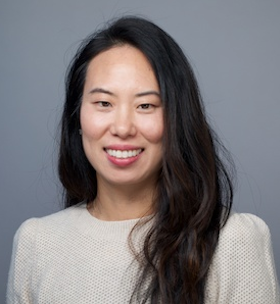
Leisa Reichelt leads the Research and Service Experience team at Atlassian, a company which is already focused on developing and unleashing the potential of all its teams. Having worked in both the UK and Australia, Leisa has spent time building research capabilities within government digital teams, helping them to create easier and more accessible public services. She has consulted with a mix of London tech startups and household name brands such as The Economist, BBC, Virgin Atlantic and many more. Although she loves research, Leisa’s passion is in enabling organisations to transform themselves through gaining a compelling and closer understanding of the user needs they serve.
Rebekah Park is a Partner at Gemic based in New York, working primarily within tech and healthcare. She has spent the last two decades applying anthropological theory and methods to create change through her work in business, academia, public policy, and NGOs. Previously, she worked at ReD Associates, was a tenure-track professor at Marlboro College in Vermont, and worked at policy think tanks including the Poverty and Race Research Action Council and African American Policy Forum. Rebekah holds a PhD in Anthropology from UCLA, a MA in Applied Medical Anthropology from University of Amsterdam (the Netherlands) where she was a Fulbright scholar, and a BA in American Studies from Northwestern University.
Zuilenzaal
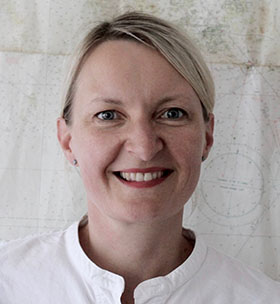
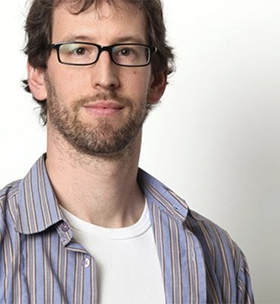
Heli Rantavuo is Director of Product Insights at Spotify, working at the intersection of innovation, design and ethnography. Heli has worked as applied researcher and research leader at eBay, Microsoft and Nokia, and as academic researcher at LSE, Waseda University and Aalto University, where she also earned her Doctor of Arts in New Media Design. She mentors at start-ups and gives industry talks on human-centred design and applied ethnography. Heli is co-founder and board member in the Human Sciences in Strategy Finland association and member of the steering committee for the EPIC2022 conference. She loves sailing, winter swimming and cocktails with Campari.
Martin Ortlieb is a user experience researcher at Googler Germany currently looking at how to keep knowledge workers productive, happy and committed at work. He researches processes of integrating the best work tools with human social needs to build effective teams and a resilient company culture. This is a long-standing interest: his PhD focused on the imagination of identity through conceptions of work, and he has published on conceptualizations of ‘culture’ in commercial ethnography. Giving back to the communities that nurture and host Martin both is really important to Martin, like being a member of the steering committee for the EPIC2022 conference. He recently went demonstrating with Greta Thunberg, just adopted two kittens, and likes good conversation.
Virtual Session
Watch party, discussion & meet-up hosted by Gladys Rosa-Mendoza, Experience Research & Strategy, Meta.
Creating More Resilient FuturesCurators: Hilja Aunela, Noren and Rogério Lourenço, Cross Project Resources
These presentations address resilience in method and practice, when confronted with uncertain and adverse situations. When and how does agency, self-awareness, creativity and the imagination become fundamental to the work we do? How do we make the very methods we use resilient when our subjects are uncertain? What stake do these approaches have in making futures for our subjects and for our very practice?
Rehearsing Imagined Futures: Creative Performance as a Resilient Process Among Refugees (Paper)
Nicole Aleong, University of Amsterdam
Building Resilient Futures in the Everyday: Virtual Worlds and the Social Resilience of Teens During COVID-19 (Paper)
Julian Gopffarth, Stripe Partners
Rebecca Jablonsky, Google
Cath Richardson, Stripe Partners
Beneath the Hype: Self-Ethnography to Explore the Human Possibilities within NFT Technology (PechaKucha)
Jake Silva, Meta
Becoming Digitally Resilient: Understanding the Gap between Online Government Services and Low Ability Users (PechaKucha)
Yoni Lefevre, STBY bv
Dorota Gazy, STBY bv
Navigating Matters Charged with Controversy (PechaKucha)
Stefani Bachetti, Motorola Solutions
Curators: Oskar Korkman, Alice Labs and Anni Ojajarvi, Swanlake
Corporations increasingly take responsibility for societal change and the mark they leave within the world, demonstrated by how they focus on diversity in advertising or inclusive design practices. Public organizations, by definition, are rooted in a society-based purpose and now look to accelerate digital transformation and innovation. In this session, we learn from four case studies across the public and private sectors that demonstrate ethnography leading the way: creating resilient organizations and resilient futures for the public good. Participate in this session if you are curious about designing better social systems, large-scale implementation of ethnographic methods in public organizations, diversity representation in advertising and technology inclusion for people with hearing impairment.
How a Government Organization Evolved to Embrace Ethnographic Methods for Service (and Team) Resilience (Case Study)
Colin MacArthur, Bocconi University
Mithula Naik, Canadian Digital Service
Designing and Envisioning a More Resilient Social System (Case Study)
Sofia Carvalho, With Company
Dismantling Stereotypes: Taking an Inside-Out Perspective to Building Better Representation in Advertising for Unilever (Case Study)
Stephanie Barrett, Quantum Consumer Solutions
Designing and Conducting Inclusive Research: How a Big Tech Company and an Online Research Platform Partnered to Explore the Technology Experiences of Users who are Deaf and Hard of Hearing (Case Study)
Dana Gierdowski, Lenovo
Karen Eisenhauer, dscout
Peggy He, Lenovo
Keynote: Kurt Ward
 Kurt Ward is a Senior Design Director at Philips Healthcare, based in the Netherlands. His goal is to design sustainable and adaptable health systems by redefining the social determinants of health and reframing humanity’s relationship with the natural world.
Kurt Ward is a Senior Design Director at Philips Healthcare, based in the Netherlands. His goal is to design sustainable and adaptable health systems by redefining the social determinants of health and reframing humanity’s relationship with the natural world.
Livestream, then watch on-demand
Virtual Session
In this session, we will reflect on songs that have thematically resonated with us in trying situations and contexts. We’ll explore aspects of these songs, such as lyrics and tempo, that transformed our lived experiences. Then, Stefan Choo will perform songs that cultivated resilience for him.
Host: Stefan Choo, Queensland University of Technology
Concurrent Session
Livestream, then watch on-demand.
Critical Perspectives on Embracing Resilience (Zuilenzaal)This session critically evaluates conventional ideas and practices resilience to reveal paradoxes and pitfalls. The Papers and PechaKuchas will show how resilience can be either a toll or an opportunity to create systems of reciprocal care. Presenters also provide tools and fresh ideas to reframe the concept of resilience in turbulent times.
Jobs Not to be Done: Anti-Work Politics and the Resilience of Mutual Aid (Paper)
Todd Carmody, Gemic
Against Resiliency: An Ethnographic Manifesto (Paper)
Lauren Rhodes, Cisco
Jillian Powers, Cognizant Technologies
Beyond Representation: Using Infrastructure Studies to Reframe Ethnographic Agendas and Outcomes (Paper)
Karl Mendonca, Google
Resisting Resilience: An Anthropologist’s Paradox (PechaKucha)
Nadya Pohran, University of Cambridge
Social Resilience (PechaKucha)
Jenny Rabodzeenko, Allstate
Kelly Costello, Women Initiating New Directions (WIND)
Resilience: Lessons from a Period of Disruption (PechaKucha)
Traci Thomas, BCG Platinion
Wildcard
Zosha Warpeha
Curator: Allegra Oxborough, AERO Creative
In this session, violinist and composer Zosha Warpeha will speak about her artistic research in Norway, which involved an immersive study of Nordic traditional music and the creation of a new body of artistic work. This session will illustrate a participatory model of ethnographic research through which the artist built an embodied knowledge of traditional music and laid the groundwork for artistic exploration and expansion. She will discuss the tension between two visions of preservation—one that captures a tradition in a single moment in time and one that allows the tradition to organically evolve alongside a community—and make the case for the necessity of innovation as a method of preservation and resilience. This session will include musical demonstrations and a short performance of original music inspired by tradition.
Wildcard
Jonathan DeFaveri, Headspace Health
Chelsea Coe, Headspace Health
Curated by Allegra Oxborough, AERO Creative
What forms of our pandemic adaptation have also become barriers to connection? In this session, we’ll examine the aspects of resilience that support – and sometimes hold us back from – the intimacy and safety we seek to create as ethnographers. We’ll begin by sharing our personal experiences navigating this tension as researchers working in mental health and then lead the group in a partner exercise to explore these themes and offer space to connect and listen. We’ll close with a guided reflection on the experience and the role of interpersonal connection, deep listening, context, and the physical environment in our practice.
Concurrent Sessions
Livestream, then watch on-demand.
Resilience in Acute ContextsCurators: Nimmi Rangaswamy, IIIT Hyderabad and Tiffany Tivasuradej, CBRE
How can researchers and ethnographers stay resilient in times of crisis? This session will explore specific contexts of crises and catastrophes, in addition to caregiving moments where resilience is vital. Presentations approach resilience as a theoretical and ethnographically driven analytical process, illustrating in-context perceptions, survival strategies, modes of adaptation, and lessons for renewed resilience practices.
The Giving Caregivers: Resilience as a Double-Edged Sword in the Context of Healthcare (Paper)
Juliana Saldarriaga, A Piece of Pie
Amplifying Resilient Communities: Identifying Resilient Community Practices to Better Inform Health System Design (Paper)
Romit Raj, Quicksand Design Studio
Babitha George, Quicksand Design Studio
Cristin Marona, Matchboxology
Rebecca West, Ipsos
Annabel Gomez, Independent Technical Advisor
Tracy Pilar Johnson, The Bill & Melinda Gates Foundation
Aditya Prakash, Quicksand Design Studio
Sunny Sharma, Ipsos
Ayushi Biyani, Quicksand Design Studio
Mrittika Barua, James P Grant School of Public health, BRAC University
Cal Bruns, Matchboxology
With the Phone in the Field: Making the Ethnographic Toolbox Resilient to Change (PechaKucha)
Signe Helbo Gregers Sørensen, Alexandra Institute
The Myth of The Pipeline Problem: Creating a Diverse and Thriving Team (PechaKucha)
Kristin Zibell, AnswerLab
Shakima Jackson-Martinez, AnswerLab
There is a general belief that moving fast (and in some cases, breaking things) is a competitive advantage for business—but this ethos can be at odds with deeper knowledge building and strategic foresight, which are the hallmarks of strong ethnographic insights. These cases re-frame ethnography as a resilient method within shifting organizational structures and needs. They offer specific frameworks and practices for utilizing contextually rich human stories to not only keep ethnography resilient, but also in service of a resilient organization.
Navigating the Next with Resilience: Global Portfolio Strategy in a World of Uncertainty (Case)
Giulia Gasperi, TRIPTK
Creating Resiliency of Research Findings: Using Ethnographic Methods to Combat Research Amnesia (Case)
Kristen Guth, Reddit
Cybersecurity in the Icelandic Multiverse (Case)
Meghan McGrath
David Goren, Independent Audio Documentarian
Curator: Jake McAuliffe, ReD Associates
A sonic ethnography centered around an interactive sound map of Brooklyn’s pirate radio stations serving West Indian, Latino, and Orthodox Jewish neighborhoods. Drawing from eight years of radio airchecks, interviews with station operators, listeners, and their opponents, the presentation will examine the cultural and political forces that created this illegal grassroots radio community, its uncertain future, and the methodology behind the project.
Wednesday,
October 12
Concurrent Sessions
Livestream, then watch on-demand.
Resilience in Acute ContextsCurators: Nimmi Rangaswamy, IIIT Hyderabad and Tiffany Tivasuradej, CBRE
How can researchers and ethnographers stay resilient in times of crisis? This session will explore specific contexts of crises and catastrophes, in addition to caregiving moments where resilience is vital. Presentations approach resilience as a theoretical and ethnographically driven analytical process, illustrating in-context perceptions, survival strategies, modes of adaptation, and lessons for renewed resilience practices.
The Giving Caregivers: Resilience as a Double-Edged Sword in the Context of Healthcare (Paper)
Juliana Saldarriaga, A Piece of Pie
Amplifying Resilient Communities: Identifying Resilient Community Practices to Better Inform Health System Design (Paper)
Romit Raj, Quicksand Design Studio
Babitha George, Quicksand Design Studio
Cristin Marona, Matchboxology
Rebecca West, Ipsos
Annabel Gomez, Independent Technical Advisor
Tracy Pilar Johnson, The Bill & Melinda Gates Foundation
Aditya Prakash, Quicksand Design Studio
Sunny Sharma, Ipsos
Ayushi Biyani, Quicksand Design Studio
Mrittika Barua, James P Grant School of Public health, BRAC University
Cal Bruns, Matchboxology
With the Phone in the Field: Making the Ethnographic Toolbox Resilient to Change (PechaKucha)
Signe Helbo Gregers Sørensen, Alexandra Institute
The Myth of The Pipeline Problem: Creating a Diverse and Thriving Team (PechaKucha)
Kristin Zibell, AnswerLab
Shakima Jackson-Martinez, AnswerLab
There is a general belief that moving fast (and in some cases, breaking things) is a competitive advantage for business—but this ethos can be at odds with deeper knowledge building and strategic foresight, which are the hallmarks of strong ethnographic insights. These cases re-frame ethnography as a resilient method within shifting organizational structures and needs. They offer specific frameworks and practices for utilizing contextually rich human stories to not only keep ethnography resilient, but also in service of a resilient organization.
Navigating the Next with Resilience: Global Portfolio Strategy in a World of Uncertainty (Case)
Giulia Gasperi, TRIPTK
Creating Resiliency of Research Findings: Using Ethnographic Methods to Combat Research Amnesia (Case)
Kristen Guth, Reddit
Cybersecurity in the Icelandic Multiverse (Case)
Meghan McGrath
Virtual Session
Watch party, discussion & meet-up hosted by Gladys Rosa-Mendoza, Experience Research & Strategy, Meta.
Practical Resilience: Ethnographic Impact that Endures in a Changing WorldCurator: Lisa Kleinman, GoTo
There is a general belief that moving fast (and in some cases, breaking things) is a competitive advantage for business—but this ethos can be at odds with deeper knowledge building and strategic foresight, which are the hallmarks of strong ethnographic insights. These cases re-frame ethnography as a resilient method within shifting organizational structures and needs. They offer specific frameworks and practices for utilizing contextually rich human stories to not only keep ethnography resilient, but also in service of a resilient organization.
Navigating the Next with Resilience: Global Portfolio Strategy in a World of Uncertainty (Case Study)
Giulia Gasperi, TRIPTK
Creating Resiliency of Research Findings: Using Ethnographic Methods to Combat Research Amnesia (Case Study)
Kristen Guth, Reddit
Cybersecurity in the Icelandic Multiverse (Case Study)
Meghan McGrath
Curators: Nimmi Rangaswamy, IIIT Hyderabad and Tiffany Tivasuradej, CBRE
How can researchers and ethnographers stay resilient in times of crisis? This session will explore specific contexts of crises and catastrophes, in addition to caregiving moments where resilience is vital. Presentations approach resilience as a theoretical and ethnographically driven analytical process, illustrating in-context perceptions, survival strategies, modes of adaptation, and lessons for renewed resilience practices.
The Giving Caregivers: Resilience as a Double-Edged Sword in the Context of Healthcare (Paper)
Juliana Saldarriaga, A Piece of Pie
Amplifying Resilient Communities: Identifying Resilient Community Practices to Better Inform Health System Design (Paper)
Romit Raj, Quicksand Design Studio
Babitha George, Quicksand Design Studio
Cristin Marona, Matchboxology
Rebecca West, Ipsos
Annabel Gomez, Independent Technical Advisor
Tracy Pilar Johnson, The Bill & Melinda Gates Foundation
Aditya Prakash, Quicksand Design Studio
Sunny Sharma, Ipsos
Ayushi Biyani, Quicksand Design Studio
Mrittika Barua, James P Grant School of Public health, BRAC University
Cal Bruns, Matchboxology
With the Phone in the Field: Making the Ethnographic Toolbox Resilient to Change (PechaKucha)
Signe Helbo Gregers Sørensen, Alexandra Institute
The Myth of The Pipeline Problem: Creating a Diverse and Thriving Team (PechaKucha)
Kristin Zibell, AnswerLab
Shakima Jackson-Martinez, AnswerLab
Keynote: Melissa Gregg
 Melissa Gregg is a senior principal engineer in user experience driving carbon reduction and green software strategy at Intel. With a PhD in gender and cultural studies, she is a widely cited author, theorist, and ethnographer, with over 60 peer-reviewed publications and books. Her research has appeared in Wired, Fast Company, Fortune, The New York Times, The Guardian, BBC and CBC, and has been translated into Russian, Mandarin and Korean.
Melissa Gregg is a senior principal engineer in user experience driving carbon reduction and green software strategy at Intel. With a PhD in gender and cultural studies, she is a widely cited author, theorist, and ethnographer, with over 60 peer-reviewed publications and books. Her research has appeared in Wired, Fast Company, Fortune, The New York Times, The Guardian, BBC and CBC, and has been translated into Russian, Mandarin and Korean.
(+livestream)
